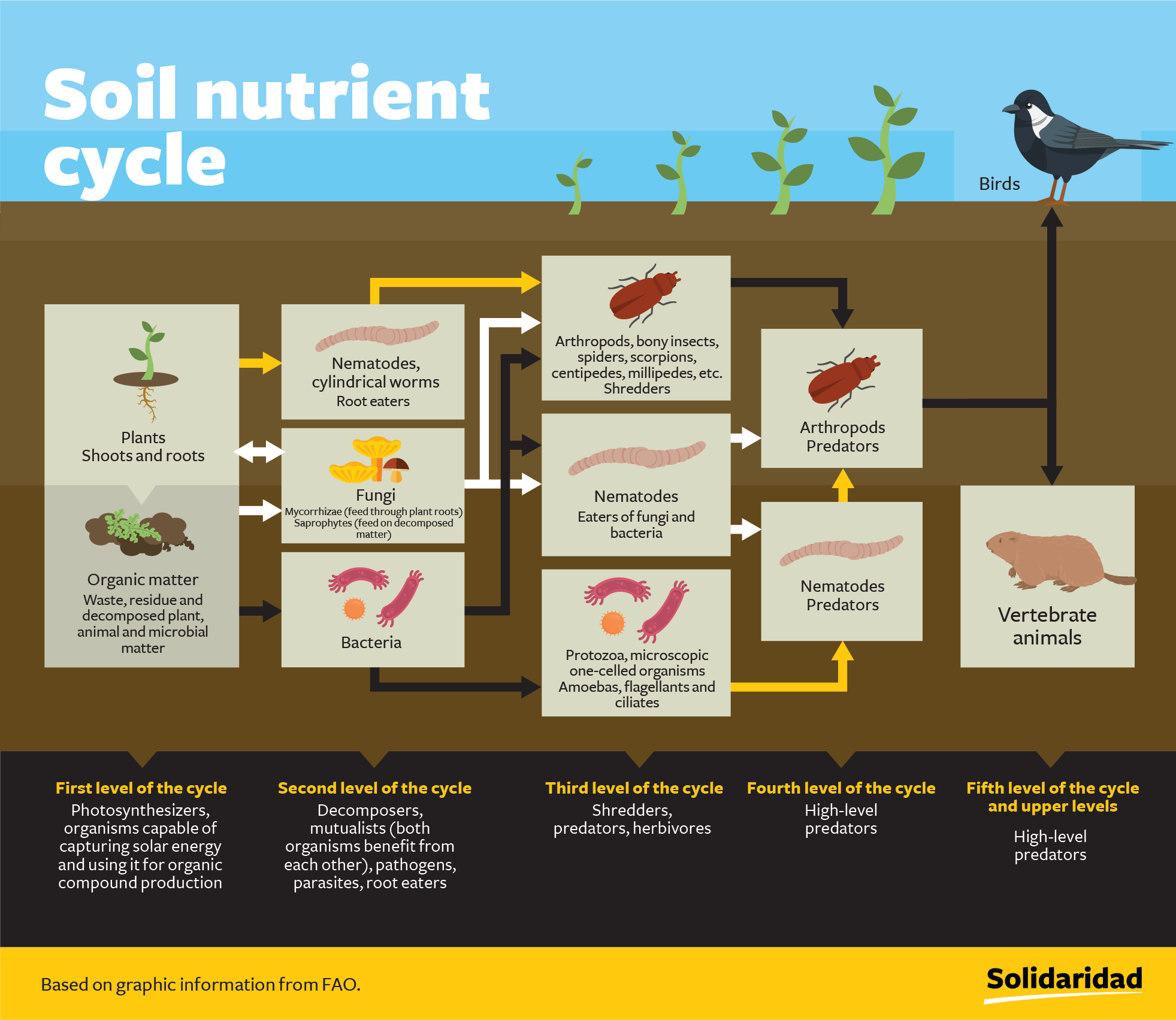Soil is an essential part of global cycles for the sustainability of all living things. This month is a great time to begin discussions with your peers about soil conservation, with World Soil Day starting us off on 5 December. You can share the infographic above or the article below, first published in Spanish earlier this month, with your contacts to strike up a conversation about protecting soils and biodiversity.
Also, make time to view Solidaridad Asia’s session Soil Stewardship: A Pathway to Climate Change Mitigation from a few days ago, which features a discussion by 2020 World Food Prize recipient Dr. Rattan Lal.
Soil conservation and biodiversity preservation through biological monitoring
At Solidaridad, we work within the different agricultural chains, promoting soil protection, providing comprehensive guidance on good agroecological practices that protect soil biodiversity. We provide technical assistance in the preservation of forest coverage and protection of natural resources. An example of this is the Biological Monitoring project in Colón, Honduras, through which we work in collaboration with the Salamá Cooperative.
We provide biodiversity monitoring through camera traps installed in strategic areas of oil palm plantations and especially in surrounding forested areas.
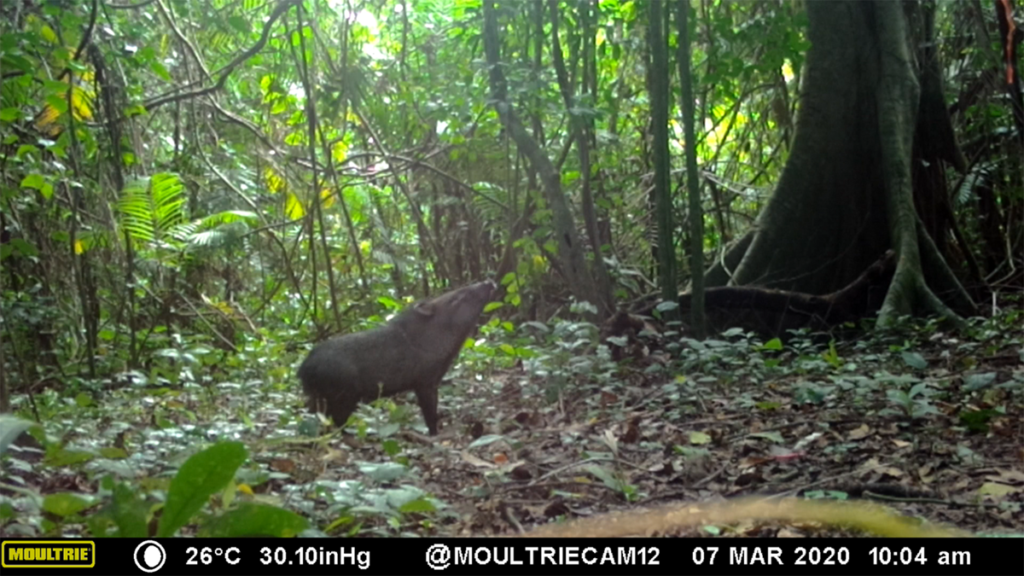
Through the camera images we can confirm that these areas are home to a variety of mammals. Knowing which species inhabit the areas near palm plantations allows us to ensure adequate actions to protect them are implemented.
Biological Connectivity Project Training Programme
One of these actions involves creating awareness in the actors involved throughout the supply chain. To strengthen Salamá’s biodiversity preservation and natural resources conservation efforts, we have provided training to its 220 workers since 2018.
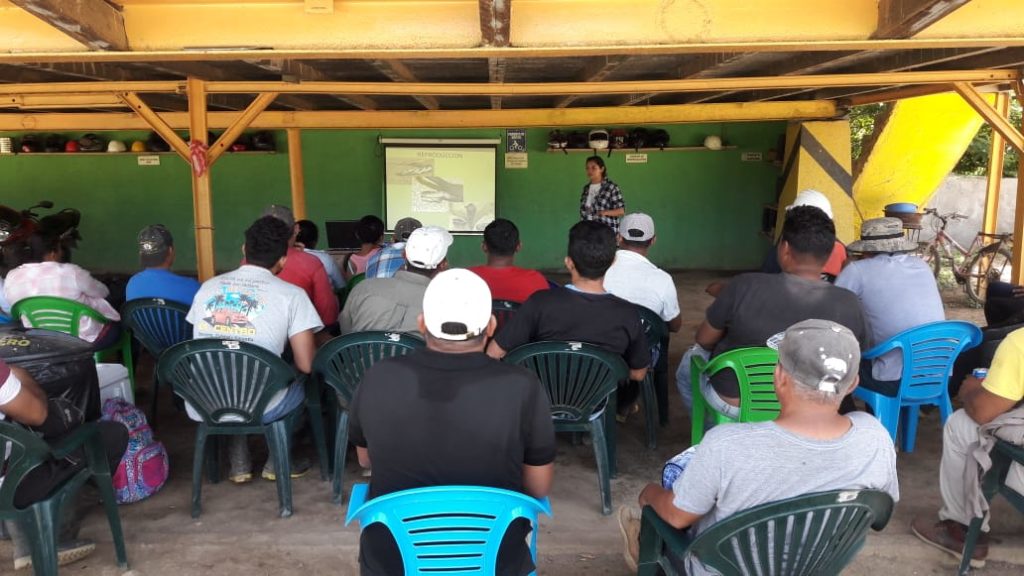
Through Solidaridad’s Sustainable Landscapes (PaSos) programme, we developed a training plan under the Biological Connectivity project framework. These workshops raise awareness about the importance of protecting the biodiversity present in oil palm plantations and their surrounding wooded areas through soil conservation and the protection of other natural resources. This year, we worked in the cooperative’s six farms during October and November to provide the following workshops:
- Biodiversity: We reviewed the importance of species and their function in the ecosystem; the activities that affect biodiversity; rare, threatened or endangered species and areas of high conservation value.
- Causes and consequences of water pollution, GHG and solid waste: We analyzed and raised awareness about the proper use of water, about pollution and its consequences, the focal points of emissions on the farm and consequences and good practices in waste management.
- Snake varieties and their toxicity: We explained the differences between venomous and non-venomous snakes, outlined those found in Honduras and provided recommendations to prevent and avoid accidents.
- Ecological restoration and biological connectivity: We described and analyzed the importance of birds and mammals as restorers of ecosystems, the importance of forest fragments near plantations and of riparian zones for the preservation of diversity and to maintain the genetic flow of the species.
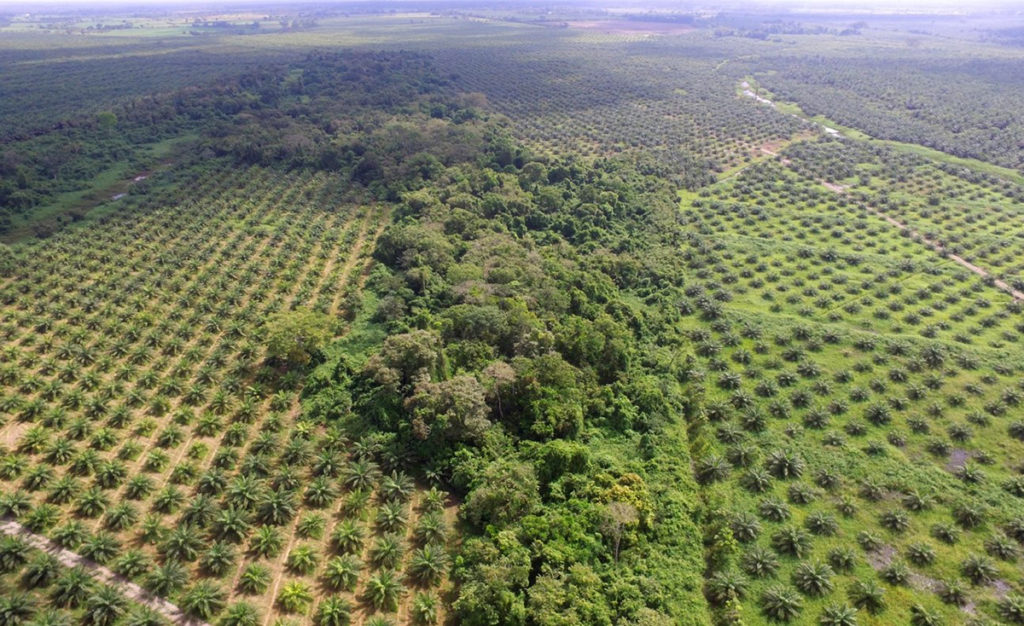
Upon completing the workshops, Salamá employees understand the importance of practicing soil conservation. They relate the practices to an increase in productivity in plantations, due to the link between soil fertility and the diversity of plants, animals and other organisms that inhabit a healthy soil.
Good agricultural practices strengthen soil conservation
Throughout the region, we work with small coffee and cocoa producers using an agroforestry system. This practice contributes to conserving the soils and perpetuating the nutritional cycle of soils, since arthropods, medium-sized mammals and a great diversity of birds thrive in a plot cultivated in an agroforestry system.
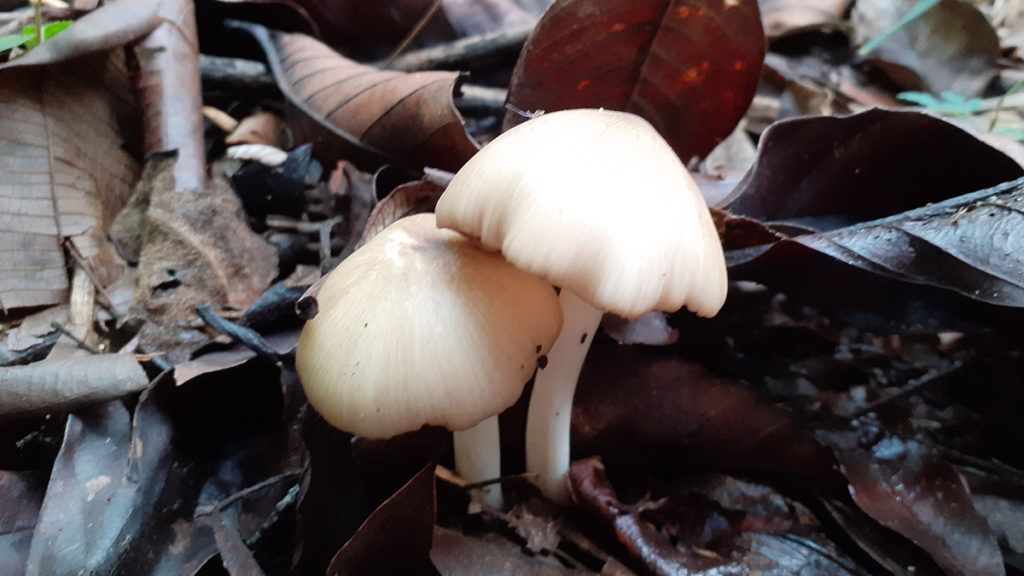
In addition, through PaSos we coordinate with multi-stakeholder platforms to propose action plans through integrated landscape management that address challenges in productive, social and environmental issues.
Our PanameriCaña sugarcane programme promotes the protection of soil, water, air and biodiversity through integrated systems that reduce negative impacts and enhance positive ones using measurements of natural well-being indices. This includes strategies such as training programmes to strengthen small sugarcane producers with good sustainable agricultural practices. In addition, at the mill level, we support the development and implementation of environmental management plans so that conservation can be addressed from their perspective as well.
Learn more about our conservation programmes in the region.

